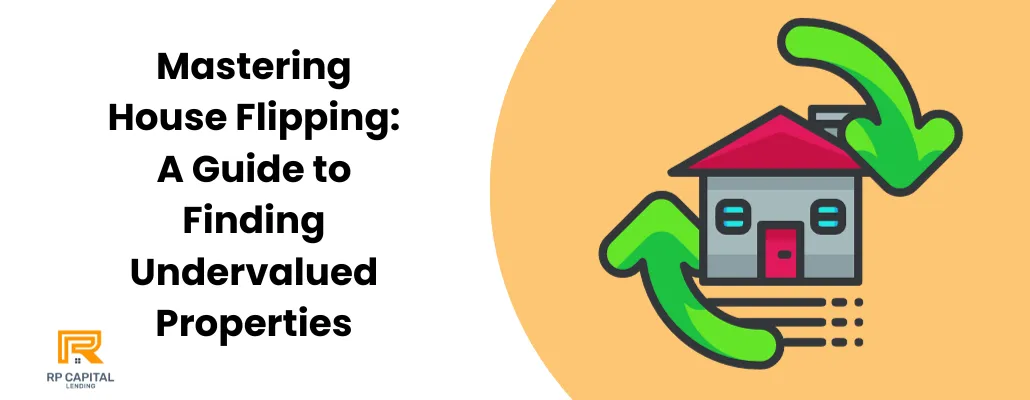Blog

Mastering House Flipping: A Guide to Finding Undervalued Properties
As an experienced writer in the real estate investment sector, I'm excited to share my insights on how to find cheap houses to flip. This strategy has become increasingly popular among investors looking to capitalize on the potential for high returns. Here's a comprehensive guide on how to scout for these hidden gems.
1. Research Emerging Neighborhoods
Emerging neighborhoods are often goldmines for flipping houses. Look for areas with signs of development, such as new businesses, improved infrastructure, or increasing property values. These neighborhoods often have properties that are undervalued but have the potential for significant appreciation. Pay attention to local news, community forums, and city development plans to stay ahead of the curve. Remember, timing is crucial – getting in early before the majority of investors take notice can lead to substantial profits.
2. Network with Local Real Estate Agents
Establishing strong connections with local real estate agents can be invaluable. These professionals have first-hand knowledge of the market and can alert you to potential deals before they're listed publicly. Building a rapport with agents means they're more likely to think of you when a suitable property comes up. Attend local real estate events, join online forums, and regularly communicate with agents to keep your name at the forefront.
3. Utilize Online Real Estate Platforms
Online platforms like Zillow, Redfin, and Realtor.com are great resources. These websites provide detailed information on properties, including price history, neighborhood statistics, and market trends. Set up alerts for new listings in your targeted areas, and use filters to narrow down potential properties based on your budget and desired characteristics. Keep in mind that some of the best deals may require extensive renovations, so factor in the cost of repairs when evaluating a property.
4. Explore Government-Owned Properties
Properties owned by government entities, like HUD homes or bank foreclosures, are often sold below market value. These homes can be excellent opportunities for flippers, but they often require a fast decision and a cash purchase. Check out websites like HUD.gov and local bank listings for foreclosure properties. Be prepared for a competitive bidding process and ensure you have your financing in order.
5. Attend Local Auctions
Property auctions can be a great source for finding cheap houses. These properties are usually in need of repair, making them perfect for flipping. Before attending an auction, research the properties thoroughly, understand the bidding process, and set a strict budget. Remember, auction purchases often come with risks, such as limited inspection opportunities, so due diligence is key.
6. Drive Around Target Neighborhoods
Sometimes, the old-fashioned approach works best. Driving around neighborhoods can help you spot "For Sale by Owner" signs that might not be listed online. This method also gives you a feel for the area and potential property needs, which can be invaluable in making an informed decision. Always approach homeowners respectfully and be prepared to make an offer quickly if you find a suitable property.
Conclusion
In conclusion, finding cheap houses to flip involves a blend of strategic research, networking, and a keen understanding of the real estate market. By focusing on emerging neighborhoods, building relationships with real estate agents, leveraging online platforms, exploring government-owned properties, attending local auctions, and physically scouting neighborhoods, you can uncover valuable flipping opportunities.
Remember, success in house flipping is not just about buying low but also enhancing value through smart renovations and selling strategically. Stay informed, be patient, and your investment could yield substantial returns.
FAQs
1: Is it necessary to have a big budget to start flipping houses?
Not necessarily. While having capital is beneficial, there are financing options available for investors with smaller budgets.
2: How important is location when flipping houses?
Extremely important. The location determines the potential resale value and attractiveness to buyers.
3: Should I do the renovations myself or hire professionals?
It depends on your skills and budget. Hiring professionals ensures quality but can be more expensive.
4: How do I calculate the profitability of a flip?
Assess the purchase price, renovation costs, and potential selling price to estimate profitability. Include a buffer for unexpected expenses.
5: Can I flip houses as a part-time job?
Yes, many investors start flipping houses part-time before transitioning to full-time.
RP Capital Lending is a d.b.a of RP Capital Partners Inc (NMLS # 2469193) | Privacy Policy
Copyright © 2022. All Rights Reserved.
Disclaimer: Loans only apply to non-owner occupied properties. Rates, terms and conditions offered only to qualified borrowers, may vary upon loan product, deal structure, other applicable considerations, and are subject to change at any time without notice.

